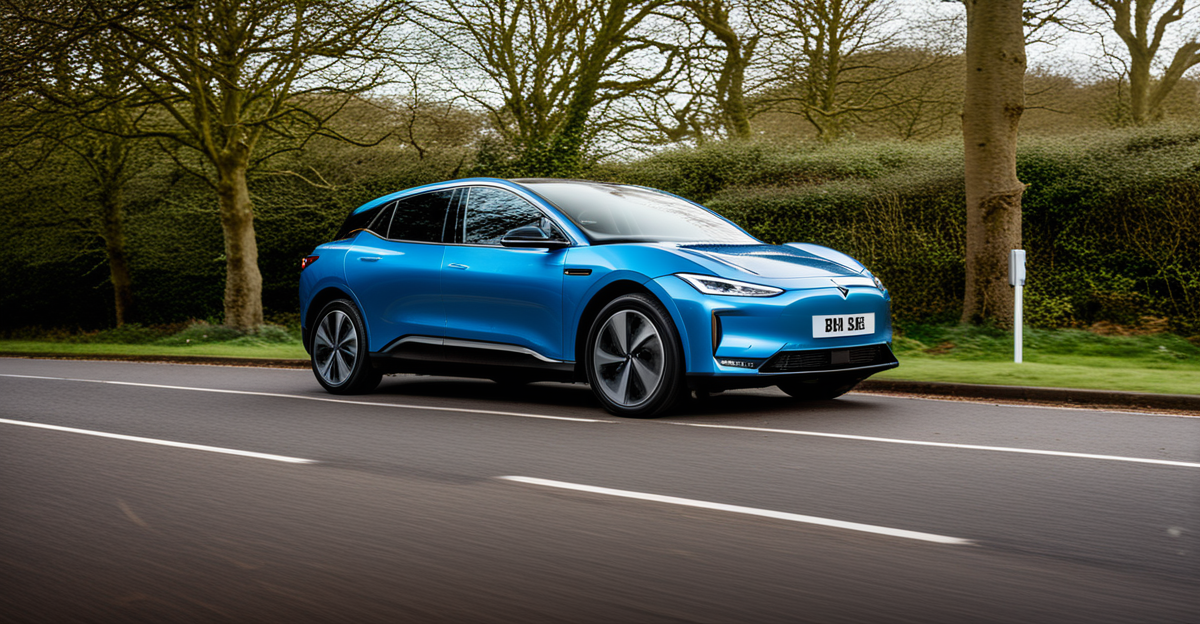Key obstacles for UK automakers in the switch to electric vehicles
Transitioning to electric vehicle manufacturing involves several significant UK EV transition challenges. A primary obstacle is supply chain issues affecting components and raw materials critical for EV production. UK automakers depend heavily on imported batteries and rare earth metals, which are subject to international market fluctuations and logistical hurdles. This reliance creates vulnerability, especially given geopolitical tensions and trade restrictions.
Manufacturing costs are rising sharply in the EV sector. Electric vehicle manufacturing hurdles include expensive raw materials and the need for advanced technology investment. These increased costs impact the affordability of new EV models, constraining the UK auto industry’s capacity to scale production competitively.
Have you seen this : What Are the Future Trends in UK Automotive That Could Impact Your Car Buying Decisions?
Furthermore, reshaping existing factories to accommodate EV assembly lines requires costly upgrades. The complexity of integrating new technologies into traditional manufacturing frameworks also slows progress. Together, these factors underscore why UK EV transition challenges remain profound, demanding innovative strategies and targeted support to maintain the country’s automotive relevance in a rapidly evolving global market.
Impact of regulations and government policy on the EV industry
Regulations and government policy critically shape the UK EV transition challenges. Evolving emissions standards impose strict limits on vehicle pollutants, compelling manufacturers to accelerate EV production despite existing electric vehicle manufacturing hurdles. The post-Brexit trade landscape has introduced additional complexities, such as tariffs and customs hurdles, which affect the supply chain stability and cost structures for UK automakers.
Additional reading : How Will Autonomous Vehicles Transform the Car Manufacturing Industry?
Government incentives, including subsidies for EV buyers and funding for charging infrastructure, aim to drive consumer adoption and industry growth. However, regulatory uncertainty remains a significant UK auto industry obstacle. Shifts in policy can disrupt long-term planning, making investment in new technologies and factory upgrades riskier.
Compliance with EU and global EV mandates adds further pressure. UK manufacturers must meet stringent standards not only domestically but also to maintain competitiveness in international markets. This dual regulatory burden demands enhanced agility and strategic foresight. Collectively, these factors illustrate how government policy and regulatory frameworks directly influence the pace and success of the UK’s electric vehicle industry transition.
Workforce transformation and skills gap
The automotive workforce retraining in the UK faces urgent demands due to the UK EV transition challenges. Traditional manufacturing roles require extensive upskilling and reskilling to manage complex EV technologies. This is critical because the sector experiences a pronounced EV talent shortage, especially in battery technology and electric drivetrain assembly. These skills are not easily transferable from internal combustion engine production, creating a gap that stifles growth.
Education and training programs are adapting but lag behind the rapid pace of industry change. For example, technical colleges and apprenticeship schemes are expanding EV-focused curricula, yet many workers still need hands-on experience with new manufacturing processes. Addressing this skills gap in UK manufacturing will improve productivity and innovation, alleviating one of the major UK auto industry obstacles.
Without a sufficiently trained workforce, electric vehicle manufacturing hurdles will persist, slowing the industry’s ability to meet both domestic and international demand. Strategic investments in workforce development are crucial to overcoming workforce-related challenges tied to the UK’s EV transition.
Key obstacles for UK automakers in the switch to electric vehicles
Supply chain issues remain a critical UK EV transition challenge. UK automakers heavily depend on imported batteries and rare earth metals, which are subject to price volatility and supply disruption. This reliance creates uncertainty and delays in production schedules. For example, fluctuations in the availability of lithium and cobalt directly affect battery manufacturing, compounding electric vehicle manufacturing hurdles.
Rising manufacturing and development costs also pose significant UK auto industry obstacles. The expense of raw materials, combined with the necessity for advanced technology investments, pushes production budgets higher. These cost pressures limit the ability to offer competitively priced EV models, slowing consumer adoption.
Moreover, upgrading existing manufacturing facilities to support EV assembly is complex and costly. Converting traditional plants involves retooling processes and integrating new technologies that differ substantially from internal combustion engine production. This challenge amplifies obstacles, as it demands capital and time while maintaining production output.
Together, supply chain dependencies, escalating costs, and factory transformation issues highlight why the UK faces pronounced challenges in scaling its electric vehicle sector efficiently and competitively.
Key obstacles for UK automakers in the switch to electric vehicles
One of the most pressing UK EV transition challenges is the persistent inconsistency in the supply chain for crucial EV components and raw materials. UK automakers notably rely on imported batteries and rare earth metals like lithium and cobalt, which are vulnerable to geopolitical tensions and international market volatility. These electric vehicle manufacturing hurdles create delays and unpredictability in production schedules, complicating the scaling-up of EV output.
Concurrently, escalating manufacturing and development costs heavily weigh on the UK auto industry. The surge in raw material prices, coupled with significant investments needed for new technology development, inflates expenses. This combination represents a significant UK auto industry obstacle, making competitively priced EV models harder to achieve.
Additionally, the transition from traditional engine assembly lines to EV production demands costly factory upgrades. Retooling manufacturing processes to accommodate battery assembly technology is complex, requiring both capital and specialized expertise. The intertwined nature of supply chain fragility, rising costs, and infrastructure conversion forms a substantial barrier, hindering rapid UK EV industry expansion amid global competition.
Key obstacles for UK automakers in the switch to electric vehicles
The UK EV transition challenges are markedly defined by fragile supply chains, particularly for EV components and raw materials. UK automakers’ heavy reliance on imported batteries and rare earth metals like lithium and cobalt creates a critical vulnerability. When geopolitical tensions or international market shifts occur, delays and cost fluctuations result, complicating production schedules and amplifying electric vehicle manufacturing hurdles.
Rising manufacturing and development costs further strain the industry. The surge in raw material prices, coupled with the need for substantial investments in new technologies, inflates production expenses. Consequently, these UK auto industry obstacles limit the ability to offer affordable EV models, impeding wider consumer adoption.
Additionally, adapting existing factories for EV assembly involves complex retooling and specialized expertise, making the transformation costly and time-intensive. This infrastructure shift compounds the financial and operational challenges automakers face, hindering rapid scaling.
Addressing these intertwined obstacles requires strategic supply chain diversification, cost mitigation efforts, and targeted investment in factory modernization to strengthen the UK’s position in the evolving global EV landscape.








